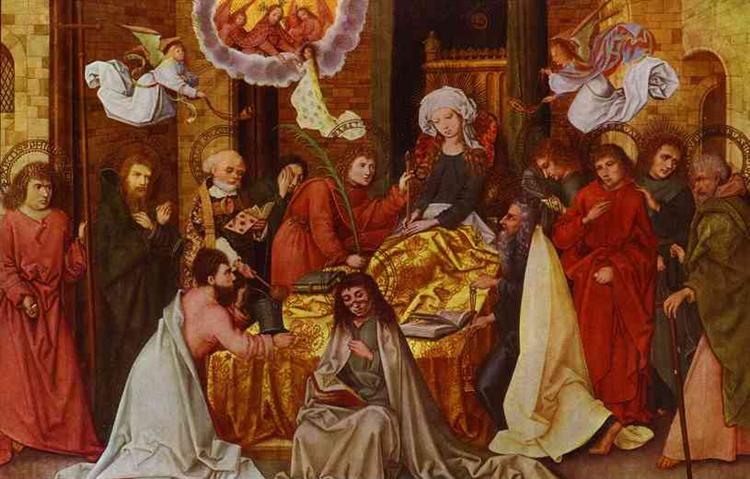Description
The work "Death of the Virgin" of Hans Holbein the young man, one of the most outstanding figures of German Renaissance, offers us a deep reflection on death, spirituality and human condition. Painted around 1515, this work illustrates the moment of the death of the Virgin Mary, a recurring theme in Christian iconography, but Holbein treats him with a unique approach that makes this painting a fascinating object of study.
From a compositional perspective, the canvas is organized meticulously, in a structure in which the characters seem to be around the central figure of the Virgin. Holbein uses a remarkable use of space, creating a visual triangle that directs the look towards the face of Mary, who lies in a deathbed, surrounded by apostles and other relevant characters. This grouping of figures not only reinforces the drama of the scene, but also facilitates an intense emotional connection between the viewer and the tragedy represented.
The colors selected by Holbein are equally significant in this work. The palette is rich and varied, but a gloomy tone predominates that evokes a feeling of grief. The deep blue and green that dress the apostles contrast with the Immaculate White of the Virgin's clothes, symbolizing its purity and its central role in the scene. Detail attention in tissue textures also deserves recognition, highlighting Holbein's mastery in surface representation, a characteristic feature of his style.
The characters are meticulously integrated in the painting narrative. They can be recognized, among them, figures that symbolize sadness and resignation. Each face reflects a specific emotion, from anguish to contemplation, suggesting not only the pain for the death of Mary, but also a deep meditation on life and death. This approach to the expression of emotions prevents the work from falling into pain purity, offering a richer reading that invites reflection.
A less known aspect of the work is its history and context within the Renaissance. Holbein, who spent part of his career in England, was influenced by humanism and anatomy, which translates into the almost sculptural representation of the figures. The precision in the representation of the human body, added to a thorough study of the clothes and the architectural decoration of the background, reveals the influence of its environment and the rise of anatomy in the art of its time.
Today, "Death of the Virgin" is located in the Thyssen-Bornemisza Foundation Museum, where he continues to invite the spectators to a deep contemplation. The painting not only stands out as a milestone within the Holbein corpus, but also presents itself as a masterpiece of the Renaissance, which through its composition, color and representation of characters, manages to capture the essence of a moment as painful as sacred . In a world where life and death themes are often found in the periphery of artistic discourse, Holbein's work highlights the importance of introspection and spiritual meaning of death, ensuring its enduring place in art history.
KUADROS ©, a famous paint on your wall.
Hand-made oil painting reproductions, with the quality of professional artists and the distinctive seal of KUADROS ©.
Reproduction service paintings With a guarantee of satisfaction. If you are not completely satisfied with the replica of your painting, we refund your money 100%.

